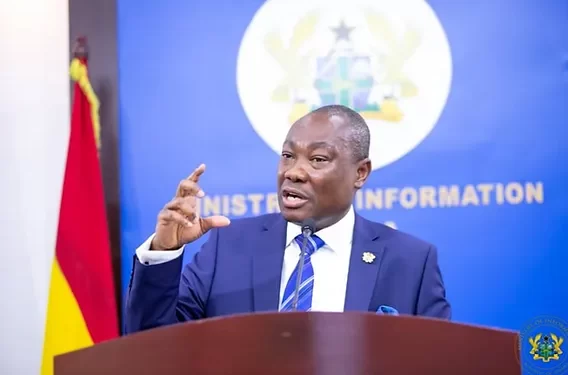The Chief Executive Officer of the Minerals Commission, Martin Ayisi, has dismissed the idea of his Commission seeking the authority to bear arms in the fight against illegal mining, commonly known as galamsey.
Instead, he has called for more resources to tackle the menace effectively while speaking at a public hearing before Parliament’s Assurance Committee on October 7.
Mr. Ayisi rejected the notion that the Minerals Commission should be given the power to bear arms, explaining that such a move would require significant changes in government policies, which he deemed unnecessary. He pointed out that the Forestry Commission already has the authority to bear arms, yet illegal activities still occur in forested areas without proper licenses.
“If we were to request the power to bear arms, it would mean a shift in government policies, and that would be too much for us. There are many water bodies and forests in this country, and even though the Forestry Commission bears arms, people still enter these areas without licenses. I’m not asking the government to give us arms,” he noted.
Instead, he stressed the need for additional resources to strengthen the Minerals Commission’s operations. “What the Minerals Commission needs are more resources, which we are getting, though it’s never enough,” Mr. Ayisi remarked.
Mr. Ayisi expressed frustration over the lack of action from the police despite several reports submitted regarding illegal mining activities.
He highlighted the situation at Anyinam Police Station, where officers had been repeatedly informed about mining operations happening right behind their station, yet no action has been taken to stop them.
“We have reported on numerous occasions that illegal mining is happening behind the Anyinam Police Station, without any permit from us. The police are aware, so why is nothing being done? The Minerals Commission has done its part by reporting the issue,” Mr. Ayisi said.
He admitted that the Minerals Commission is not without fault, especially in cases where licensed operators may have made mistakes, but reiterated that once the Commission reports illegal activities to the relevant authorities, its responsibility ends there.
“I’m not saying we are perfect or that we haven’t made mistakes, particularly when licensed individuals fail to comply with regulations. That’s why we have inspectors. But once we report illegal activity to the appropriate institutions, like the police, our role is complete,” he added.
The Minerals Commission, governed by the Minerals Commission Act of 1993 (Act 450), is tasked with formulating recommendations for national policies on mineral exploration and exploitation. It advises the Minister of Lands and Natural Resources, monitors mineral-related activities, and ensures the enforcement of policies regarding mining operations. The Commission also processes applications for mineral rights and reviews agreements relating to mineral resources to guide national decision-making.








